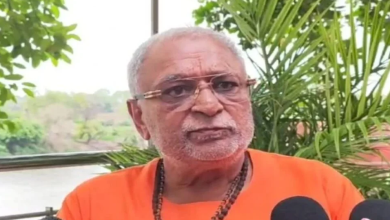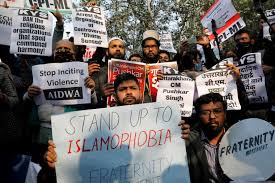BJP moves SC for removal of term ‘secular’ from India’s Constitution’s preamble
 New Delhi: Indian Supreme Court has challenged the motives of petitioners seeking to remove the terms “secular” and “socialist” from the Preamble of India’s Constitution, asking, “You don’t want India to be a secular state?”
New Delhi: Indian Supreme Court has challenged the motives of petitioners seeking to remove the terms “secular” and “socialist” from the Preamble of India’s Constitution, asking, “You don’t want India to be a secular state?”
According to Kashmir Media Service, the petitioners, including BJP leader and former MP Subramanian Swamy, argue that these terms distort India’s original democratic ideals. However, the court emphasized that secularism is a fundamental feature of the Constitution and is part of its “basic structure,” which cannot be amended according to landmark rulings such as Kesavananda Bharati and SR Bommai.
During the proceedings, Justice Sanjiv Khanna noted that secularism in India implies equal treatment of all religions, distinguishing it from Western notions that advocate a complete separation between religion and state. The inclusion of the term “secular” in the Preamble merely clarifies the inherent philosophy of the Constitution.
The case has revived discussions surrounding the 42nd Constitutional Amendment of 1976, which introduced “socialist” and “secular” into the Preamble to align the nation’s identity with contemporary social and political values.
Petitioner Vishnu Shankar Jain argued that the 42nd Amendment was never adequately debated in Parliament. Justice Khanna countered that the matter has been thoroughly discussed, asserting that both terms have evolved meanings and interpretations. “Socialism can also imply fair opportunity for all, and secularism has various interpretations,” he stated.
Swamy further contended that the Preamble, dated November 26, 1949, should not include these terms, suggesting a division into two parts—one with the date and another without. The court, however, asked the petitioners to provide relevant documents for further examination and set November 18 as the next hearing date, refusing to issue notices at this stage.








